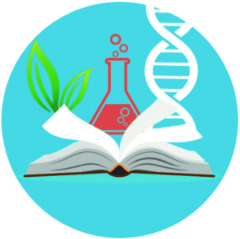
Nurses shape patient experiences and influence the quality of care at every stage of treatment. Their presence at the bedside gives them a clear understanding of patient needs, concerns, and progress. This close contact allows them to spot subtle changes, support families, and guide individuals through unfamiliar medical situations.
Strong clinical skills and steady communication help patients feel informed and supported. Their work strengthens recovery, prevents complications, and creates a safer environment. This combination of knowledge, attention, and compassion explains why effective nursing care remains central to better health outcomes.
Expanding Responsibilities in Modern Healthcare
The healthcare system depends on nurses for assessment, coordination, and patient guidance. Many patients interact with a nurse before speaking with any other professional, which positions nurses to set the tone for care. Their responsibilities extend into discharge planning, treatment preparation, symptom monitoring, and continuous communication.
Technology, changing patient needs, and new healthcare models have widened their scope of practice. Clinical decisions often rely on nurses’ observations because they are present during key moments of care. Their ability to adapt, organize, and respond quickly helps maintain stability during demanding situations. These responsibilities create a foundation that directly supports recovery and wellness.
Pathways That Prepare Nurses for High-Quality Care
Education shapes the confidence and clarity nurses bring to each interaction. Nursing programs strengthen clinical reasoning, communication, and practical skill development. Many students want training that helps them enter the workforce without unnecessary delays. If you’re considering a faster route into professional nursing, accelerated BSN programs can help you gain the required skills.
These programs build readiness for complex healthcare settings while supporting a strong understanding of patient needs. Graduates step into their roles with a sense of purpose and an ability to deliver safe and thoughtful care.
Patient Advocacy That Strengthens Care Quality
Nurses act as reliable advocates who protect patients’ needs when situations feel overwhelming. Patients often struggle to understand medical language or feel unsure about treatment directions. Clear explanations, steady reassurance, and respectful guidance help reduce fear and confusion.
Advocacy includes speaking up when a treatment plan requires review, ensuring patient preferences are acknowledged, and keeping families informed at critical moments. Many patients feel more confident when they know someone is paying attention to their concerns. This support reduces miscommunication and improves the quality of care provided across the entire healthcare team.
Care Coordination That Supports Recovery
Recovery improves when care teams communicate effectively, and nurses hold a central position in this process. Coordination includes sharing updates with physicians, preparing patients for tests or procedures, and tracking progress toward treatment goals. A well-organized approach reduces delays, prevents errors, and keeps care plans consistent.
Families receive clearer guidance because nurses maintain awareness of every step in the patient journey. Smooth coordination also helps during transitions between departments or when patients return home. Patients feel more prepared, and healthcare teams work with greater accuracy. Strong organization leads to more predictable outcomes and fewer complications.
Clinical Expertise That Enhances Safety
Clinical vigilance is a major factor in preventing serious problems during treatment. Skilled nurses recognize early signs of infection, medication reactions, or worsening symptoms. Careful monitoring gives them the ability to respond quickly and alert the broader team before an issue escalates.
Many complications can be avoided when nurses track vital patterns, evaluate changes, and adjust care plans within their scope. Their technical ability supports safer environments for patients who may feel vulnerable or uncertain. When nurses maintain consistent attention, patients experience fewer setbacks and more steady progress toward recovery.
Health Education That Empowers Patients
Patient understanding plays a major role in successful treatment, and nurses guide individuals through information that often feels overwhelming. Many patients struggle with medical terms, medication schedules, and lifestyle recommendations. Clear explanations help them understand what each step means and why it matters. Nurses tailor instructions to the patient’s age, condition, and daily routine, which makes the information easier to apply.
Practical teaching supports stronger adherence to treatment plans, and patients feel more confident when making decisions about their health. This level of clarity leads to steadier recovery patterns and fewer avoidable complications. Education becomes a tool that strengthens long-term well-being and builds trust throughout the care process.
Emotional Support That Improves Patient Well-Being
Treatment creates stress and uncertainty for many people, and emotional reassurance can shift the entire experience. Nurses provide calm guidance during difficult moments, which helps patients stay grounded. Conversations that acknowledge fear or confusion create a sense of safety, especially when someone feels unsure about a diagnosis or procedure.
Encouragement and empathy help reduce tension, which supports physical healing as the body responds better when stress levels stay manageable. Families also rely on nurses for steady updates that bring comfort during long hospital stays. This compassionate presence forms a meaningful bridge between medical care and human connection, making recovery feel more achievable.
Community Impact That Addresses Long-Term Wellness
Communities benefit significantly from nursing involvement beyond clinical settings. Many nurses participate in screenings, outreach programs, and health education events that reach people who rarely visit medical facilities. These efforts identify risks early and connect individuals to resources they may not know about.
Clear communication during these activities helps people understand how to manage chronic conditions or adopt healthier habits. Public health roles allow nurses to encourage preventive care, which reduces the burden of advanced illness within communities. Their influence extends across neighborhoods, schools, and local organizations, strengthening awareness and improving overall wellness.
Nursing care plays a major role in shaping health outcomes and guiding patients through complex situations. Strong clinical skills, steady communication, advocacy, coordination, and community engagement all contribute to safer and more effective care. Patients rely on nurses for clarity, comfort, and consistent support during some of the most challenging moments of their lives.
The healthcare system depends on its expertise to maintain order, prevent complications, and encourage recovery. Each interaction reflects a commitment to meaningful, patient-centered care. This dedication continues to improve individual experiences and strengthen the overall quality of healthcare for communities everywhere.




